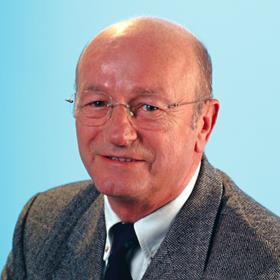
Daniel Corbel is the new president of French company Cardell Export, created at the beginning of August following a merger between apple exporter AFD-Dipra and apple supplier Cardell.
Fruitnet.com: How did you first get involved in the fresh produce business?
DC: In the early 1970s, I was the head of the shipping department for a subsidiary of P&O in Le Havre, north-west France, which was acting at the time as an apple shipper, mostly to Ireland. It was the beginning of the development of French exports to overseas markets, so relations and negotiations between fruit companies and shipping lines were essential. It was during this time that a consultant advised `French producer` Blue Whale that it was better to employ a shipping specialist and teach him about apples, than to do the reverse. So I gave up the white shirt and tie and became assistant manager of Blue Whale.
Where did you go next?
DC: I worked at Blue Whale until December 1983, when I created AFD-Dipra, a subsidiary of the Pomanjou Group, located in Provence. The aim was to enlarge the supply base in Provence in order to maintain and develop European and overseas markets. At that time Cardell became a minor shareholder of AFD-Dipra, which also improved the company’s supply base.
How did AFD-Dipra and Cardell come to be joined together?
DC: Our industry is constantly evolving. In 2004, the Pomanjou Group took the opportunity to become a major shareholder of Cardell, and in 2005, following the resignation of Jean-Marie Cardell as president, it took over the ownership of the company. I was then nominated as president of the whole Cardell Group. Being in charge of both AFD-Dipra and Cardell, it became obvious that the two commercial companies should become one centralised company.
What do you see as the biggest challenge facing the fresh produce industry?
DC: Everything is a challenge at the moment, not least the increase in costs, for labour, transportation and fuel. In addition, growing conditions are becoming increasingly difficult due to restrictions on pesticide use, which is good in one way – ensuring consumers get healthy products – but also has an impact on yields and fruit skin quality. However, we must adapt permanently and estimate consumer demand in the next 5-10 years. It must not be forgotten that planting a tree is a costly decision, and you only know four years later if this was the correct move.
What is the first thing you do when you sit down at your desk in the morning?
DC: I examine the market trends, check exchange rates, call the orchards and packhouse (hoping that there are no problems to report), and call our major customers to ensure they are satisfied with our service. When I have done all this, the day is just about over.
Do you prefer to conduct your business over the phone or via email, or both?
DC: I have to adapt to what the customer wants, and I use whatever system is required.
How much travelling is involved in your work?
DC: Travelling is part of a businessman’s life. Excluding my trips within France to meet growers and attend interprofessional meetings, I have just returned from Prognosfruit in the UK and have already booked trips to the Middle East Congress in Dubai, Asia Fruit Logistica in Hong Kong and World Food Moscow.
What do you love in particular about your job?
DC: It is hard to say. Perhaps an addiction to stress?! There is an endless list of unknowns: climatic conditions, shelf-life, market conditions, exchange rates. My swimming pool can take care of my physical well-being, but what about my mental state?!



